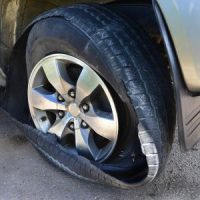Defective Tires: What You Need to Know

Our cars and trucks are made up of many parts that help them run properly. Some of the most important parts are the tires. When you are inside a vehicle, tires are the only thing separating you from the ground. An issue with your tires can quickly become a serious or even fatal issue.
While many tire issues are caused by wear and tear, sometimes manufacturer defects come into play. When this happens, you can sue the tire manufacturer and recover compensation for your damages. Here’s a look at signs of tire failure and common defects you should know about.
Signs of Tire Failure
Is your tire about to blow out? Here are signs that could point to a tire issue in the near future:
- Cracking or cuts in the sidewalls
- Uneven tread wear
- Excessively worn tread
- Bulges or blisters
- Excessive vibration
These signs can point to misalignment, underinflation, overinflation, weak spots, and reflect other damage that can be dangerous. As a result, it is important for drivers to get to a tire shop as soon as possible to have their vehicle evaluated if they suspect an issue with a tire.
Common Tire Defects
Tire defects can vary, but some common ones include the following:
- Tread separation. This occurs when the tread of the tire separates from the underlying structure, such as the belts. Tread separation can lead to loss of control and catastrophic blowouts.
- Belt separation. Similar to tread separation, belt separation involves the separation of the tire’s steel belts from each other or from the tire’s inner liner. This defect can cause the tire to fail suddenly.
- Sidewall damage. Sidewall damage includes cuts, punctures, bulges, or cracks on the tire’s sidewall. Such damage weakens the tire’s structure.
- Bead failure. The tire bead is the part of the tire that seals it to the wheel rim. Bead failure can occur due to manufacturing defects or improper installation, resulting in loss of air pressure and potential detachment of the tire from the rim.
- Casing damage. Casing damage involves structural damage to the tire’s casing, which may occur due to impact, excessive loading, or manufacturing defects. Casing damage weakens the tire’s integrity and can lead to failure.
- Uneven wear. Uneven wear patterns on the tire tread can indicate alignment issues, improper inflation, or suspension problems. Uneven wear can lead to decreased traction and handling performance.
- Manufacturing defects. These refer to issues that occur during the tire manufacturing process. They include incomplete curing, improper assembly, or the inclusion of foreign objects. Manufacturing defects can lead to tire failure or performance issues.
Contact Us Today
Nobody wants to suffer a tire blowout while traveling on the freeway or any road, for that matter. Know about the signs so you can prevent an accident.
A Columbia products liability lawyer from Simmons Law Firm can help you if you have been a victim of a defective tire or other product. We’ll assist you in getting full and fair compensation. Schedule a free consultation by filling out the online form or calling (803) 779-4600.
Source:
consumerreports.org/cars/tires/beware-these-early-warning-signs-of-tire-failure-a1005296477/
